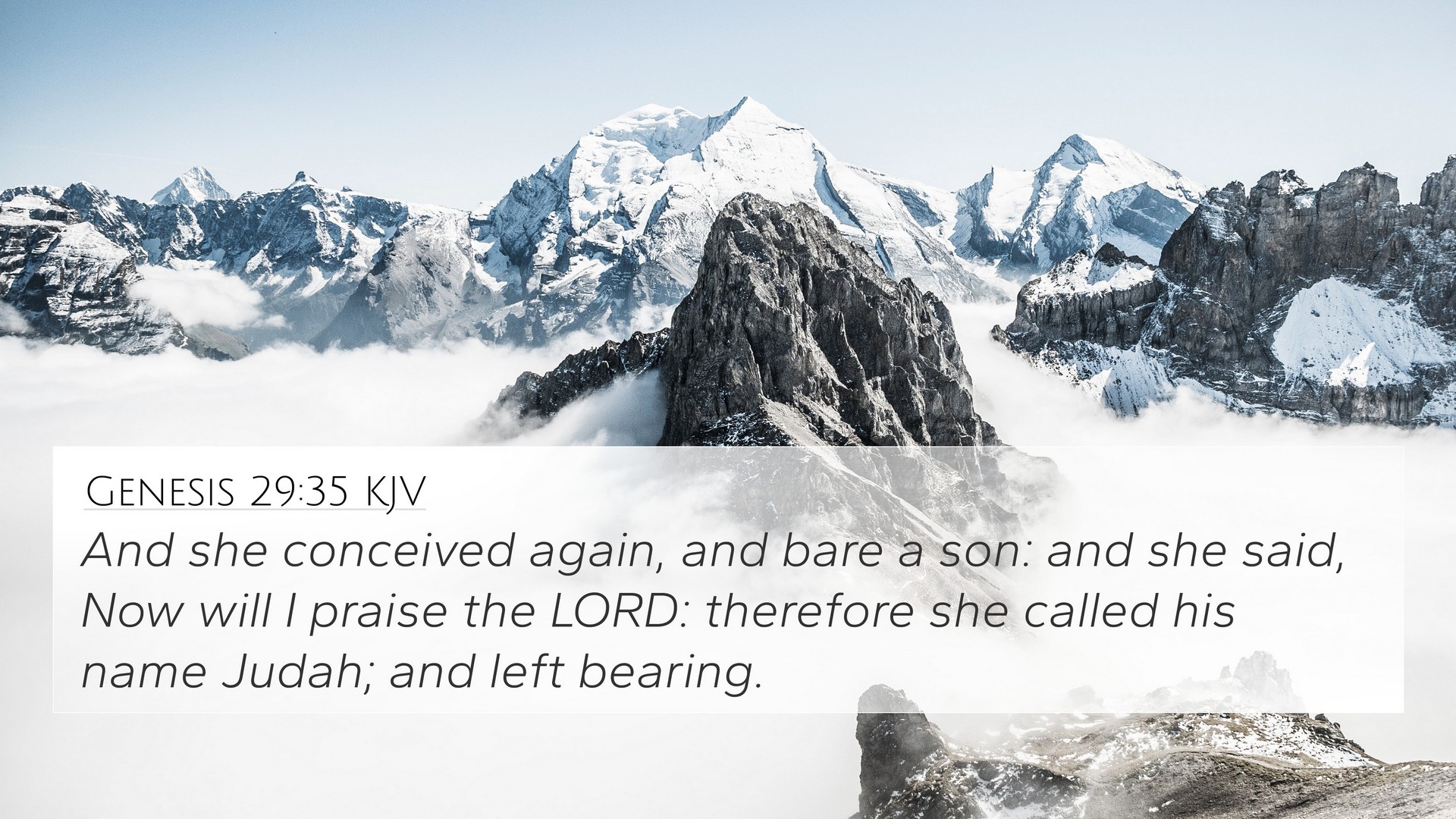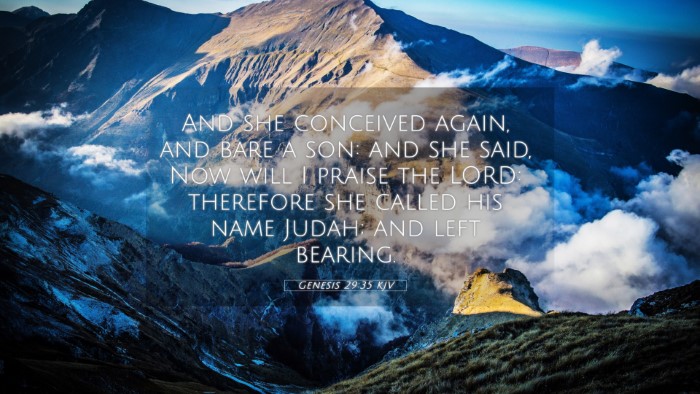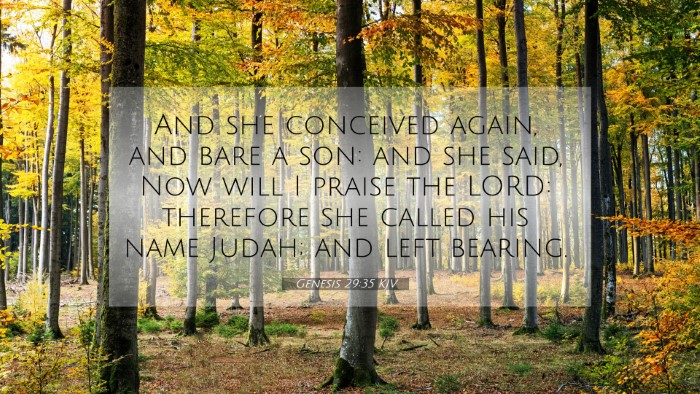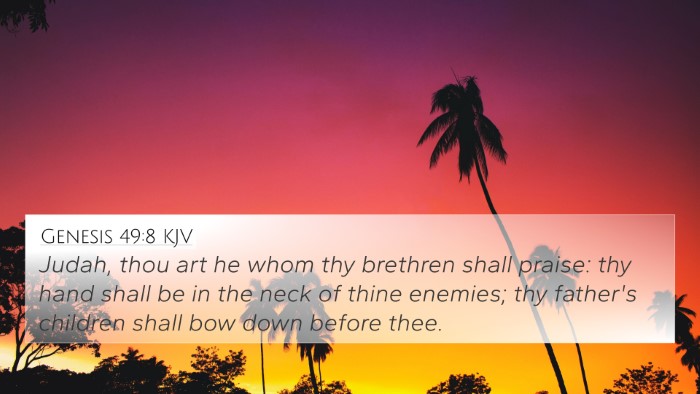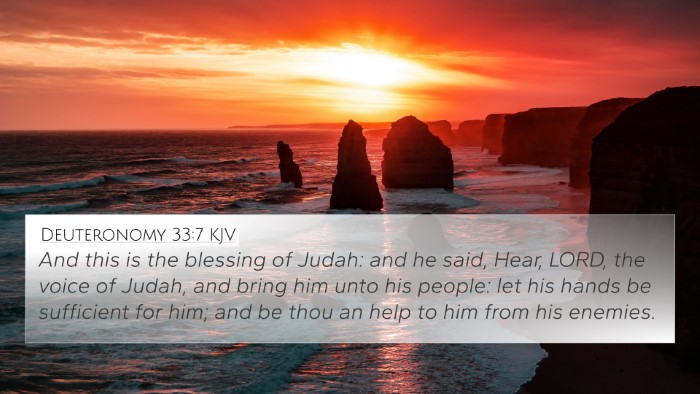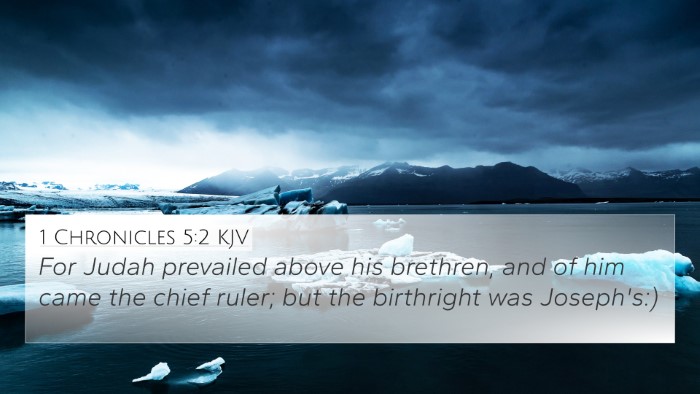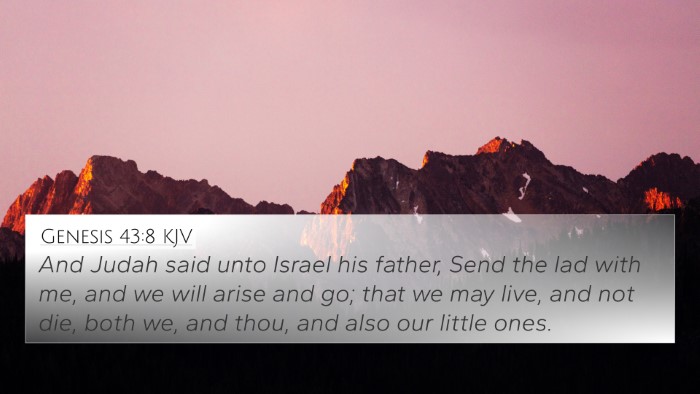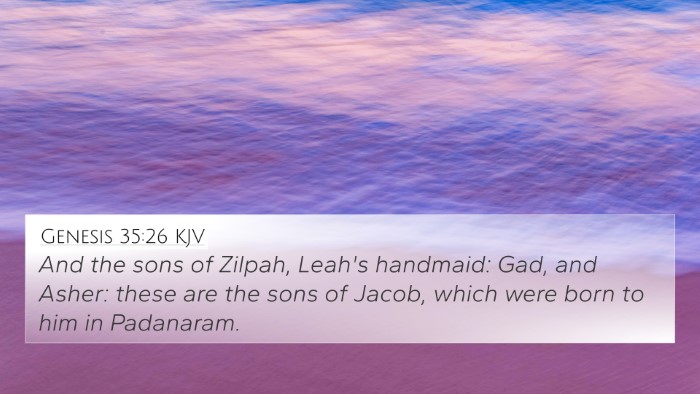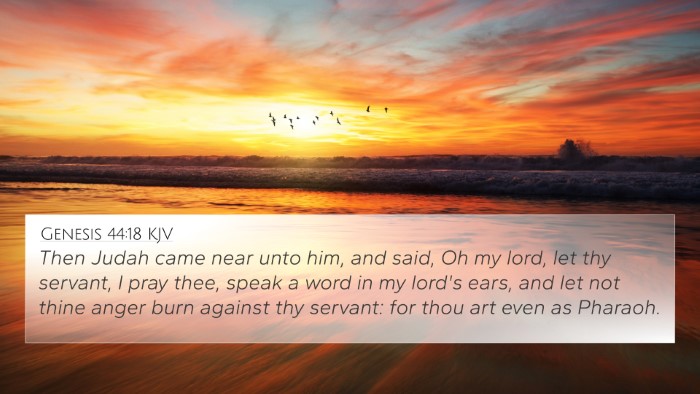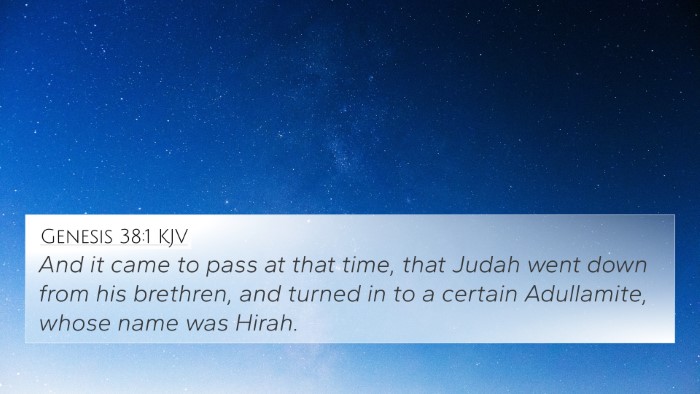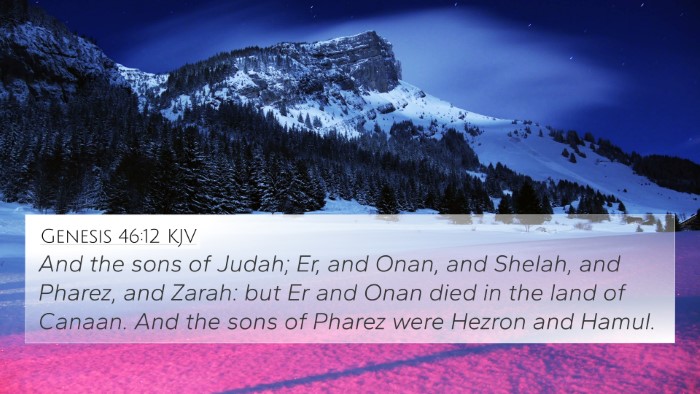Understanding Genesis 29:35
Genesis 29:35 states: "And she conceived again, and bare a son: and she said, Now will I praise the Lord: therefore she called his name Judah; and left bearing."
This verse carries profound meanings regarding the themes of praise, providence, and the significance of names in the biblical narrative. Let's delve into its interpretation, drawing insights from renowned public domain commentaries.
Verse Analysis
In Genesis 29:35, Leah, the first wife of Jacob, expresses her gratitude to God for the birth of her fourth son, whom she names Judah—meaning "praise." This act reveals her evolving relationship with God, transitioning from seeking her husband's affection to recognizing the importance of divine praise.
Thematic Insights from Commentaries
-
Matthew Henry:
Henry emphasizes that Leah’s acknowledgment of God through praise signifies a turning point in her life. Having borne three sons in hopes of winning Jacob’s love without success, she finally finds solace and fulfillment in worshipping God. This illustrates a vital lesson on the importance of prioritizing our relationship with the Lord above our earthly desires.
-
Albert Barnes:
Barnes comments on the naming of Judah as a declaration of Leah's commitment to praise God. He explains that naming is a significant theme throughout Genesis, reflecting character and destiny. This moment represents Leah’s acceptance of her circumstances and her recognition of God’s blessings despite her trials.
-
Adam Clarke:
Clarke explores the etymology of the name Judah, linking it to the Hebrew root for confessions of praise. He notes that this naming not only represents Leah’s personal acknowledgment of God's grace but also foreshadows the prominence of the tribe of Judah in the future narrative of Israel, eventually leading to the lineage of David and, thus, Christ.
Key Themes
This verse communicates several significant themes:
- The Importance of Praise: Leah's shift from seeking Jacob’s love to recognizing God’s blessing exemplifies a spiritual awakening, showcasing the transformative power of gratitude.
- Divine Providence: The births of Leah's children are seen as part of God's divine plan, revealing His involvement in their lives even amidst family strife.
- Name Significance: In biblical culture, names hold deep meanings, often reflecting the circumstances surrounding their birth, which in this case emphasizes Leah’s devotion.
Bible Verse Cross-References
Genesis 29:35 connects with several other biblical verses that echo the themes of praise, providence, and the significance of names. Here are relevant cross-references:
- Genesis 30:6: "And Rachel said, God hath judged me, and hath also heard my voice, and hath given me a son." - This reflects the idea of divine justice in the context of childbearing.
- 1 Chronicles 5:2: "For Judah prevailed above his brethren, and of him came the chief ruler; but the birthright was Joseph’s." - Emphasizing the importance of Judah's lineage.
- Romans 15:9: "And that the Gentiles might glorify God for his mercy; as it is written, For this cause I will confess to thee among the Gentiles, and sing unto thy name." - A parallel to the act of praising God.
- Psalms 78:68: "But chose the tribe of Judah, the mount Zion which he loved." - Highlighting the significance of the tribe chosen by God.
- Psalms 113:1-3: "Praise ye the Lord. Praise, O ye servants of the Lord, praise the name of the Lord." - Reinforcing the act of praising God.
- Isaiah 43:21: "This people have I formed for myself; they shall shew forth my praise." - Directly relates to the theme of being created for the purpose of glorifying God.
- Matthew 1:2-3: "Abraham begat Isaac; and Isaac begat Jacob; and Jacob begat Judas and his brethren." - Tracing the genealogy of Jesus, emphasizing the importance of Judah's line.
Conclusion
Genesis 29:35 is a poignant reminder of the importance of recognizing God’s hand in our lives and finding joy in praise rather than solely in human affection. The insights from the commentaries guide readers in understanding deeper implications of this verse, both in its immediate context and its broader biblical significance. It demonstrates how biblically themed connections and cross-referencing serve not just as a means of study, but also a lens through which believers can view God's unfolding plan throughout scripture.
Resources for Further Study
To delve deeper into the connections between Bible verses and themes, consider employing tools such as:
- Bible Concordance: Helpful for locating specific themes and topics across scripture.
- Bible Cross-reference Guide: A resource to find relationships between different passages and themes.
- Cross-reference Bible Study: Methods to explore how various scriptures interconnect thematically.
- Bible Reference Resources: Compiled material that aids in studying the scriptures more comprehensively.
- Bible Chain References: Linking verses that share relevant themes or teachings for deeper insight.
